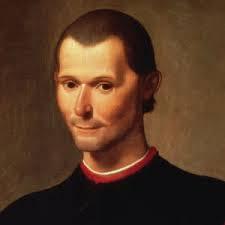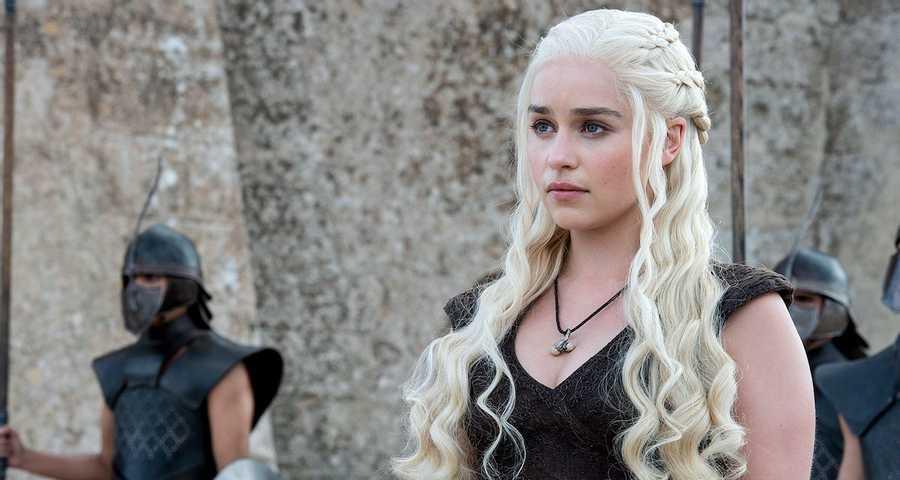Game of Throne's Daenerys is Machiavelli's Perfect Princ[ess] - PopMatters
popmatters.com
7 ideas
·992 reads
2
Explore the World's Best Ideas
Join today and uncover 100+ curated journeys from 50+ topics. Unlock access to our mobile app with extensive features.
Niccolò Machiavelli's Prince
Machiavelli ends his treatise The Prince invoking a "redeemer" who shall save enslaved Italy from the domination of foreign powers that have left her gravely wounded and "almost without life". If we consider The Prince through the optic of its concluding chapter, it becomes evident that the scope of Machiavelli's project regards "issues of redemption and foundation", the "love of country and of glory," more than it does the banality of evil.
29
242 reads
Daenerys Stormborn of House Targaryen
Her character development throughout the seasons unfolds within a dynamic that probes fundamental questions of politics and leadership.
Machiavelli examined the same questions in the 16th century in his treatise, The Prince. Daenerys may be a version of the redeemer he talk about in his treaty.
25
158 reads
Machiavelli's First instruction
First instruction to maintain power and preserve order: The prince does not have free range to conduct evil, but must strive for goodness as the primary measure of actions.
Daenerys gives conquered soldiers a choice: "Bend the knee and join me. Together, we will leave the world a better place than we found it. Or refuse and die."
28
126 reads
Machiavelli's 2nd instruction
Second instruction to maintain power and preserve order: The prince must know how to enter into evil and to what extent evil actions are required given the circumstances at hand.
- The even-tempered Tyrion ultimately concedes that Daenerys will at times "need to be ruthless if [she's] going to win the throne."
- He also calls attention to the results of abusing cruelty.
28
107 reads
Machiavelli's 3rd instruction
Third instruction to maintain power and preserve order: When can a ruler enter into evil - "if necessary" and when all other options fail.
- Pointing to his sister as a negative example, Tyrion suggests that an overreliance on fear presupposes an overuse of cruelty.
- Once a ruler's actions fatally blur the fine line that separates fear from hatred, as Cersei's have done, maintaining power becomes increasingly difficult because popular favor deteriorates.
28
98 reads
Machiavelli and need for unquestioned loyalty:
"Therefore, a wise prince must think of a way through which citizens will always, regardless of what the circumstances may be, need him and his power, and, as such, will always remain faithful to him."
- Daenerys inspired this spirit of fidelity among her subjects by her continued promises to "bring peace back to Westeros",
- to "destroy the wheel that has rolled over everyone, both rich and poor",
- and to offer better lives to all her subjects.
29
146 reads
The Prince and the Game of Thrones
Beyond the practical insight they may afford us, The Prince and Game of Thrones also reciprocally inform the respective viewing and reading of one another.
Just as The Prince elucidates the politics of Game of Thrones, so too does Game of Thrones provide a lens through which we can approach Machiavelli.
26
115 reads
CURATED BY
More like this
Read & Learn
20x Faster
without
deepstash
with
deepstash
with
deepstash
Access to 200,000+ ideas
—
Access to the mobile app
—
Unlimited idea saving & library
—
—
Unlimited history
—
—
Unlimited listening to ideas
—
—
Downloading & offline access
—
—
Personalized recommendations
—
—
Supercharge your mind with one idea per day
Enter your email and spend 1 minute every day to learn something new.
I agree to receive email updates
![Game of Throne's Daenerys is Machiavelli's Perfect Princ[ess] - PopMatters](/_next/image?url=https%3A%2F%2Fd3t70bohx4vuj7.cloudfront.net%2FMyXfhdMUgCc5Eb3Cl2rl2KWIeO7l5HuRB-WR8iHPzDY%2Fresize%3Afill%3A600%3A0%2Fgravity%3Asm%2Fquality%3A90%2FaHR0cHM6Ly9pbWFnZXMudW5zcGxhc2guY29tL3Bob3RvLTE0ODkyNzQyMjE3MjMtMmZiZDU1NGI3NTIyP2Nyb3A9ZW50cm9weSZjcz10aW55c3JnYiZmaXQ9bWF4JmZtPWpwZyZpeGlkPU1ud3hNRGN4TVRWOE1Id3hmSE5sWVhKamFId3hmSHhIWVcxbEpUSXdiMllsTWpCVWFISnZibVVsTWpkekpUSXdSR0ZsYm1WeWVYTWxNakJwY3lVeU1FMWhZMmhwWVhabGJHeHBKVEkzY3lVeU1GQmxjbVpsWTNRbE1qQlFjbWx1WXlVMVFtVnpjeVUxUkNVeU1DMGxNakJRYjNCTllYUjBaWEp6ZkdWdWZEQjhmSHg4TVRZMk9EWTROakkyTmcmaXhsaWI9cmItNC4wLjMmcT04MCZ3PTQwMA&w=3840&q=75)

